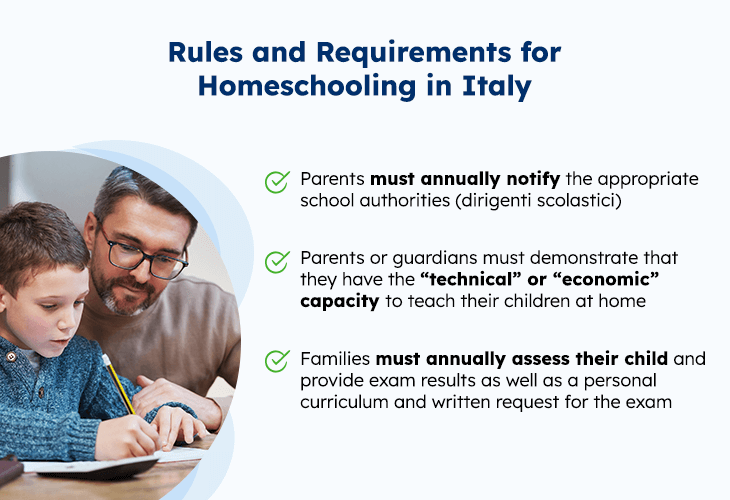Just like any other type of schooling, homeschooling is an international endeavor. Millions of families around the world have made the decision to take their child’s education into their own hands, especially during and in the wake of COVID-19. And, like the United States, every country has its own opinions, philosophies, and laws surrounding homeschooling.
In this monthly series, we’ll take a look at different countries around the world and how they view homeschooling as well as the types of laws (if any) those countries have to govern homeschooling. The first country we visited was the second-largest country in the world, and the northern neighbor to the United States–Canada. Then we went island hopping to the Philippines and Puerto Rico before cruising on over to South Africa. We headed back to the Caribbean to the Dominican Republic, traveled all the way to Thailand, made our way back to Mexico, and then journeyed to the Middle East to explore homeschooling in Qatar and Saudi Arabia! After our first venture into Europe to look at Spain, we headed back to Asia to review homeschooling in India, then back West to the United Kingdom and then back to Asia to explore homeschooling in China before shifting back to Europe to learn about homeschooling in Romania. In this edition, we’ll stay in Europe and head to Italy to learn more about homeschooling there!
Italy is full of interesting facts and figures:
- Italy ranks number 25 in world population, with just under 59 million residents.
- It was estimated that, with nearly 68 million visitors, Italy was the third-most-visited country in the world in 2023.
- Italy’s total area is 116,350 square miles, making it the 72nd-largest country in the world. Nearly 40% of the country is mountains and hills.
- There are only two cities in Italy with more than 1 million people–Rome, with more than 2.3 million and Milan, with more than 1.3 million people. Naples is nearly there, with about 960,000 residents.
- Italy is the world’s largest producer of wine–there’s even a 24-hour wine fountain in the town of Caldari di Ortona, where people can collect some free wine any time of day.
- The only three active volcanoes in Europe are in Italy: Vesuvius, Etna, and Stromboli.
- The world’s smallest country is nestled within the country of Italy–actually, within the city of Rome! Vatican City, home of the Pope as well as Saint Peter’s Cathedral and the famous Sistine Chapel, is the smallest country in the world…about ⅛ the size of Central Park in New York City.
- As of today, Italy has the highest number of UNESCO sites in the world. Some highlights include the Colosseum, the city of Pompeii, Mount Etna, and 53 more!
- There are more than 1,500 lakes in Italy.
- Italy’s population is in decline, with the country registering more deaths per day than births per day.
Rules and Requirements for Homeschooling in Italy
While homeschooling is legal, according to Italy’s constitution, it is not a widespread form of education in the country. In fact, despite its legality, schools in Italy (according to the Home School Legal Defense Association) frown upon this education choice and do not fully support students and families who choose to do so.
To homeschool in Italy:
- Parents must annually notify the appropriate school authorities (dirigenti scolastici) of their intent to homeschool.
- Parents or guardians must demonstrate that they have the “technical” or “economic” capacity to teach their children at home, meaning that the parent has completed a level of schooling beyond that of the children they are currently teaching.
- Families must annually assess their child and provide exam results as well as a personal curriculum and written request for the exam. This paperwork must be presented to the school for approval in March or April.
While the number of children homeschooling in Italy remains relatively low (especially in comparison to the country’s population), it is showing signs of growth, spurred by the pandemic in 2020 and 2021. According to data from the Ministry of Education, the number of homeschoolers increased from 5,126 in 2018-2019 to 15,361 in 2020-2021–nearly tripling in just a couple of years.
For more information on compulsory education regulations in Italy, you can visit the Ministry of Education website.
As homeschooling has grown in popularity, some homeschool support groups have been established in Italy. The websites below offer helpful information that you can use if you decide to homeschool in the country.
- Homeschooling in Naples, Italy: https://www.facebook.com/groups/1416603101973236/
- Naples Christian Homeschoolers: https://www.facebook.com/groups/napleschristianhomeschoolers/
- Homeschooling in Italy: https://www.informagiovani-italia.com/homeschooling_in_italy.htm
Living in Italy offers amazing access to some of the most incredible sights–and sites–in the world. Aside from a few of the attractions we already mentioned (the Colosseum in Rome, the Sistine Chapel in Vatican City, the city of Pompeii), the country is awash in history and offers some pretty incredible field trip ideas: the Leaning Tower of Pisa; the canals of Venice; the Tuscany countryside; authentic pizza in Naples; the Isle of Capri; the stunning Amalfi coast; the Pantheon and Trevi fountain in Rome; the art and culture of Florence; Milan; the Dolomites; the islands of Sicily and Sardinia; and so many more.
Italy’s School System
While Italy ranked #14 in the world in education, compared with the Organization for Economic Co-operation and Development’s (OECD) Education GPS–which uses the Programme for International Student Assessment (PISA) to assess the reading, science, and math skills of 15-year-old students every three years–Italy ranked slightly below the OECD averages in reading, math, and science:
- In reading, students in Italy averaged 476, a bit below the OECD country mean of 487.
- In math, students in Italy averaged 487, just below the OECD country mean of 489.
- In science, students in Italy averaged 468, below the OECD country mean of 489.
Overall, it appears that the quality of education (at least based on OECD scores) in Italy is adequate and relatively effective. The pandemic obviously fueled the surge in homeschooling in the country, but many families stuck with it regardless of the success or failures of the public education system.
The Italian homeschooling movement was spearheaded about 10 years ago by a mother of five, named Erika Di Martino, who also happens to be the founder of edupar.org, the homeschool website listed earlier in this article. She also wrote a book about homeschooling in 2017, thought to be the first on the topic in Italy, in response to growing interest in the country. Profiled in an article about Italian homeschooling, Di Martino stated that, along with the “collapse of public-school quality” is the gradual estrangement of parents from their children’s education and the replacement of the parents’ role with that of the state. Further, Di Martino and many fellow homeschoolers in Italy offer up reasons for homeschooling that are very similar to plenty of Americans’ reasons: They want to exercise their legal right to govern what their children are taught. For many parents, the desire to homeschool is driven by the desire to regain control of the education of their children, especially when they disagree with what’s being taught in government-run institutions (such as gender theory and other hot-button issues), and instill more religious teachings into their child’s education.
Bridgeway in Italy
If you are living or planning on living in Italy, homeschooling is a legal alternative to the Italian public education system. And Bridgeway Academy is ready to be the homeschool partner for expat students and families in Italy. Bridgeway Academy offers plenty of amazing homeschool programs–plus accreditation, record-keeping, and support–that can be used anywhere in the world! And, don’t forget to look up fellow Bridgeway Academy families–it’s a community that can be found in nearly two dozen countries across the globe, and the Bridgeway Academy community is a strong one.
Download our free PDF about homeschooling with a U.S. based program and then contact our admissions team at (800) 863-1474 to start your homeschool adventure. Stay tuned–we’ll be bringing you homeschooling info from another international location soon!









